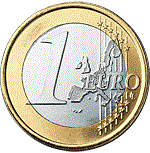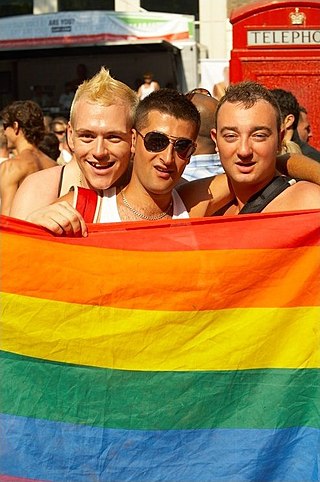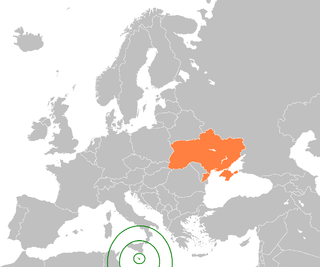Related Research Articles


The European Union (EU) is a supranational political and economic union of 27 member states that are located primarily in Europe. The union has a total area of 4,233,255 km2 (1,634,469 sq mi) and an estimated total population of over 448 million. The EU has often been described as a sui generis political entity combining the characteristics of both a federation and a confederation.

Luxembourg, officially the Grand Duchy of Luxembourg, is a small landlocked country in Western Europe. It borders Belgium to the west and north, Germany to the east, and France to the south. Luxembourg is the only surviving grand duchy in the world. Its capital and most populous city, Luxembourg, is one of the four institutional seats of the European Union and the seat of several EU institutions, notably the Court of Justice of the European Union, the highest judicial authority. Luxembourg's culture, people, and languages are highly intertwined with its French and German neighbors; while Luxembourgish is the only national language of the Luxembourgish people and of the Grand Duchy of Luxembourg, French is the only language for legislation, and all three – Luxembourgish, French and German – are used for administrative matters in the country.

There are eight euro coin denominations, ranging from one cent to two euros. The coins first came into use in 2002. They have a common reverse, portraying a map of Europe, but each country in the eurozone has its own design on the obverse, which means that each coin has a variety of different designs in circulation at once. Four European microstates that are not members of the European Union use the euro as their currency and also have the right to mint coins with their own designs on the obverse side.

Luxembourg, also known as Luxembourg City, is the capital city of Luxembourg and the country's most populous commune. Standing at the confluence of the Alzette and Pétrusse rivers in southern Luxembourg, the city lies at the heart of Western Europe, situated 213 km (132 mi) by road from Brussels, 372 km (231 mi) from Paris, and 209 km (130 mi) from Cologne. The city contains Luxembourg Castle, established by the Franks in the Early Middle Ages, around which a settlement developed.

Lublin is the ninth-largest city in Poland and the second-largest city of historical Lesser Poland. It is the capital and the centre of Lublin Voivodeship with a population of 336,339. Lublin is the largest Polish city east of the Vistula River and is about 170 km (106 mi) to the southeast of Warsaw by road.

A European Capital of Culture is a city designated by the European Union (EU) for a period of one calendar year during which it organises a series of cultural events with a strong pan-European dimension. Being a European Capital of Culture can be an opportunity for a city to generate considerable cultural, social and economic benefits and it can help foster urban regeneration, change the city's image and raise its visibility and profile on an international scale. Multiple cities can be a European Capital of Culture simultaneously.

The Northern Dimension (ND) is a joint policy between four equal partners – the European Union, Russia, Norway and Iceland – regarding the cross-border and external policies geographically covering Northwest Russia, the Baltic Sea and the Arctic regions, including the Barents Region. The ND Policy was initiated in 1999 and renewed in 2006. The Northern Dimension addresses the specific challenges and opportunities arising in those regions and aims to strengthen dialogue and cooperation between the EU and its member states, the northern countries associated with the EU under the European Economic Area and Russia. A particular emphasis is placed on subsidiarity, and on ensuring the active participation of all stakeholders in the North, including regional organizations, local and regional authorities, the academic and business communities, and civil society.

European Union culture policies aim to address and promote the cultural dimension of European integration through relevant legislation and government funding. These policies support the development of cultural activity, education or research conducted by private companies, NGO's and individual initiatives based in the EU working in the fields of cinema and audiovisual, publishing, music and crafts.

EuroPride is a pan-European international event dedicated to LGBT pride, hosted by a different European city each year. The host city is usually one with an established pride event or a significant LGBT community.

The European Civil Service is a generic term applied to all staff serving the institutions and agencies of the European Union (EU). Although recruitment is sometimes done jointly, each institution is responsible for its own internal structures and hierarchies.
Events in the year 2010 in the European Union.

Maltese-Ukrainian relations are foreign relations between Malta and Ukraine. The Maltese embassy in Moscow (Russia) is also accredited as a non resident embassy to Ukraine. Ukraine is represented in Malta through its embassy in Rome (Italy). Malta is a member of the European Union, which Ukraine applied for in 2022.

The EU Individual Open Championship was first contested in Cork, Ireland in 2005, under the auspices of organising body, the European Chess Union (ECU). The event is open to members of chess federations within the European Union. Exceptionally, at the discretion of the organisers, guest players have also been allowed to compete; for example, when the host nation has non-EU neighbours.
Bankers' bonuses are traditionally paid or awarded to some workers in the finance industry at the end of the bank's financial year. They are intended to reward employee behavior during that year that has increased the profits of the bank or some relevant part of its business, as shown by the annual accounts. The bonus culture is usually associated with the front office or investment banking divisions of banks. Although calculated in respect of past service, payment of all or part of a bonus may be deferred and made contingent on subsequent events, such as future profitability or continuing employment; this is especially appropriate if the business done is of a kind which cannot be reliably valued at the end of a year.

Climate change has resulted in an increase in temperature of 2.3 °C (2022) in Europe compared to pre-industrial levels. Europe is the fastest warming continent in the world. Europe's climate is getting warmer due to anthropogenic activity. According to international climate experts, global temperature rise should not exceed 2 °C to prevent the most dangerous consequences of climate change; without reduction in greenhouse gas emissions, this could happen before 2050. Climate change has implications for all regions of Europe, with the extent and nature of impacts varying across the continent.

Equality Parade is an LGBT community pride parade held in Warsaw since 2001, usually in May or June. It has attracted at least several thousand attendees each year; 20,000 attendees were reported in 2006, following an official ban in 2004 and 2005. In 2018, there were 45,000 attendees. In 2019, there were 50,000 attendees and then powering up to 80,000 in 2023. It is a member of EPOA and InterPride.
Events in the year 2014 in the European Union.
Events in the year 2013 in the European Union.

Albania–Poland relations are diplomatic relations between the Republic of Albania and the Republic of Poland. Poland was the first Slavic nation to recognize Kosovo as an independent entity, the relationship between two nations is quite low than expected. Nonetheless, two countries have been working closer since the fall of communism at 1989 and there has been strong renewal of relationship between two nations.
References
- ↑ "European Culture Month". Europa (web portal). Archived from the original on 2008-02-02. Retrieved 2008-02-27.